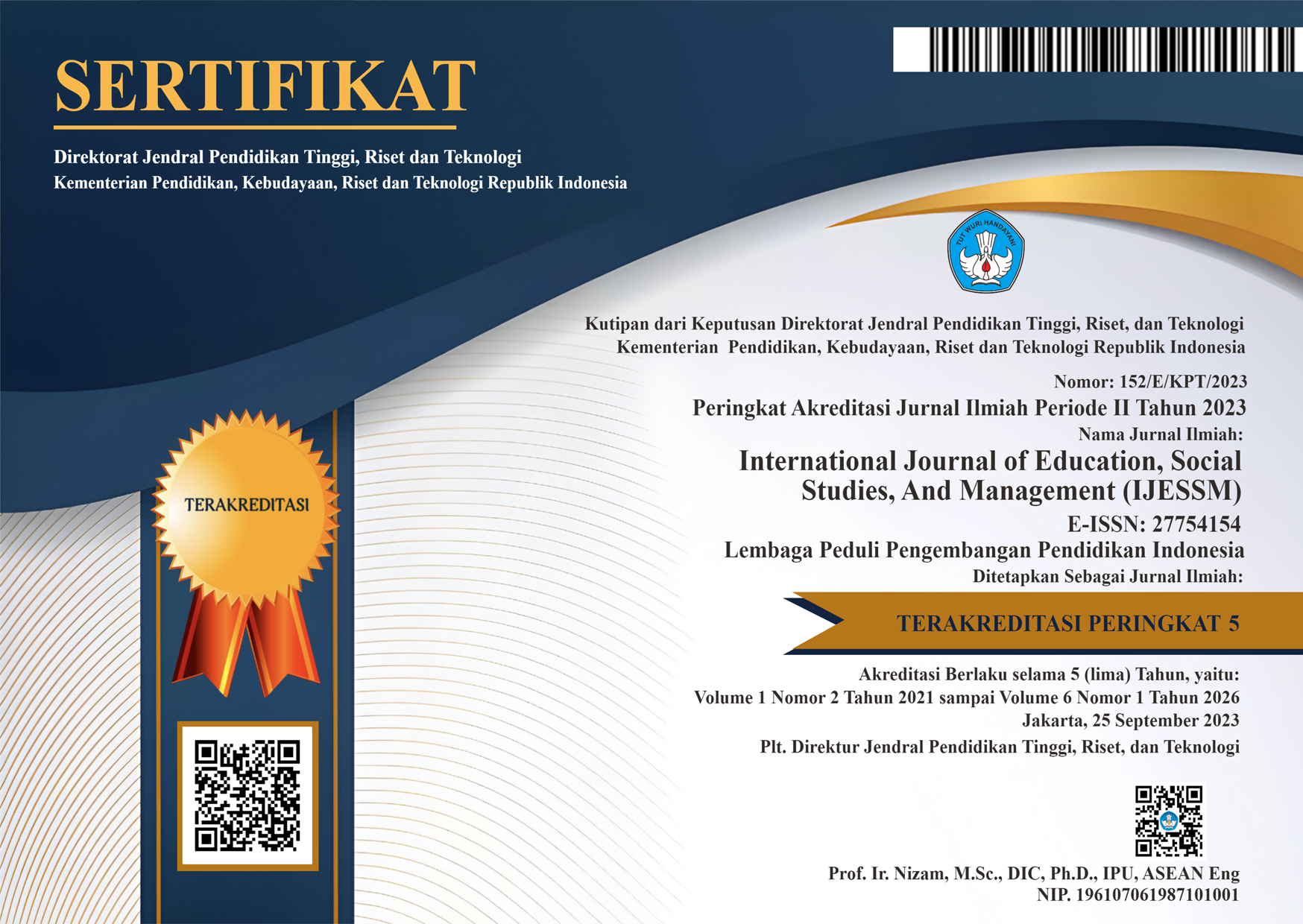Implementation of Social Science-Based Social Studies Education Theories in Social Studies Learning in Grade V at SD Negeri 060816
DOI:
https://doi.org/10.52121/ijessm.v5i3.884Keywords:
Social Studies, Educational Theories, Contextual Learning, Elementary SchoolAbstract
This study aims to analyze the implementation of social studies-based educational theories in fifth-grade social studies learning in Elementary School 060816. The theories used include constructivism, humanism, socioculturalism, behaviorism, cognitivistism, and cybernetics. This study employed a descriptive qualitative approach, with data collection techniques through interviews with fifth-grade teachers and observations of learning activities. The results show that teachers view social studies as more than just memorization, but a means of developing students' social attitudes, character, and social skills. The material is adapted to everyday life to make it more contextual, while the dominant methods used are group discussions, contextual learning, and problem-based learning. Students' differences in background are not a barrier but are instead utilized through heterogeneous group work that fosters tolerance and cooperation. Thus, the implementation of social studies-based educational theories has been proven to increase students' activeness, understanding, and social skills. This study confirms that social studies learning in elementary schools needs to be continuously developed through innovative, participatory, and real-life approaches.
Downloads
Published
How to Cite
Issue
Section
License
Copyright (c) 2025 Christin Novstasya Saragih, Elisa Rohali Hasibuan, Rahma Puspita, Chindy Abelia Nasution, Khairunnisa

This work is licensed under a Creative Commons Attribution 4.0 International License.

















